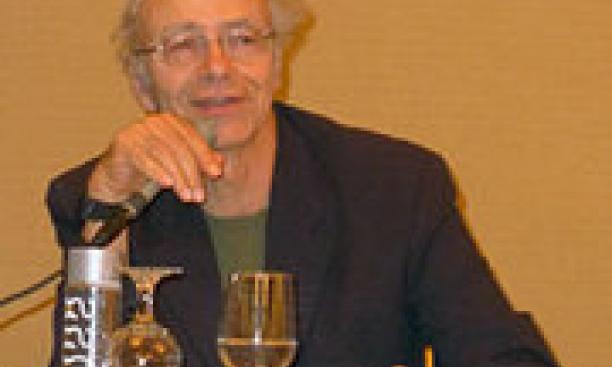
By Van Wallach ’80
As divestment of energy investments becomes a hot topic on college campuses, panelists with business and academic views gathered at the Princeton Club of New York Oct. 2 to discuss the intricacies of divestment.

The panel on energy, the environment, and endowment investing was sponsored by the Princeton Association of New York City and included four speakers: David Crane ’81, president and CEO of NRG Energy; Michael Oppenheimer, Albert G. Milbank Professor of Geosciences and International Affairs in the Woodrow Wilson School and the Department of Geosciences; Peter Singer, Ira W. DeCamp Professor of Bioethics; and Randall A. Hack ’69, past president of the Princeton Investment Company (PRINCO) and founder of Nassau Capital and Capstone Capital LLC. The moderator was Carl Ferenbach III ’64, co-founder of the private-equity fund Berkshire Partners LLC, former director of PRINCO, and a current University trustee. Alison Holtzschue ’82, co-founder and vice president of Princeton Progressives, introduced the event.
The discussion ranged across issues that included the impact of divestment of stocks of fossil-fuel companies on the University’s endowment, and on the companies themselves; whether divestment would have symbolic value; what other steps the University could take in addressing climate change; and the balance between short- and long-term steps to “move the needle” on climate issues.
Hack sketched the complexities of divestment, noting that the endowment “is not a big bucket of gold coins sitting in the basement of Nassau Hall.” Rather, it consists of gifts, some given with specific purposes. The University does not buy and sell stocks, but retains managers to make investments in stocks, bonds, venture capital, real estate, and hedge funds, with Princeton’s investments pooled with other investors’ money. Marginal changes in investment strategy can have, he said, a huge impact on investment returns.
Singer acknowledged the importance of high returns for the endowment, but noted, “We’re here to consider the possibility of other ethical constraints involving the fossil fuel industry.” Divestment by Princeton, even if limited to coal companies, would send a strong social message, so that “people would take notice.”
In a comment to Ferenbach, Oppenheimer questioned a lack of transparency in the University’s investment decisions, calling them, among all aspects of campus affairs, “the one area that is excluded to talk about.” Ferenbach cited issues of tradition and control, then pointed to whether other types of companies should also be divested, such as consumer-food companies that contribute to obesity. “Suddenly you don’t have the ability to invest in this economy,” he said.
In his closing comments, Crane stressed the need to find approaches to climate change that “move the needle and move it now.” Companies don’t respond to their investors so much as their customers, making divestment an ineffective approach. Faster change could come, he said, if consumers pressured the power companies that are customers of, say, strip-mining coal companies, and supported alternative choices, such as electric cars.
